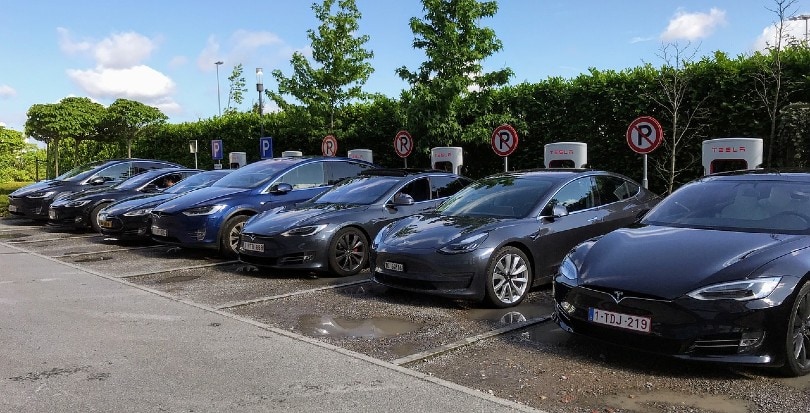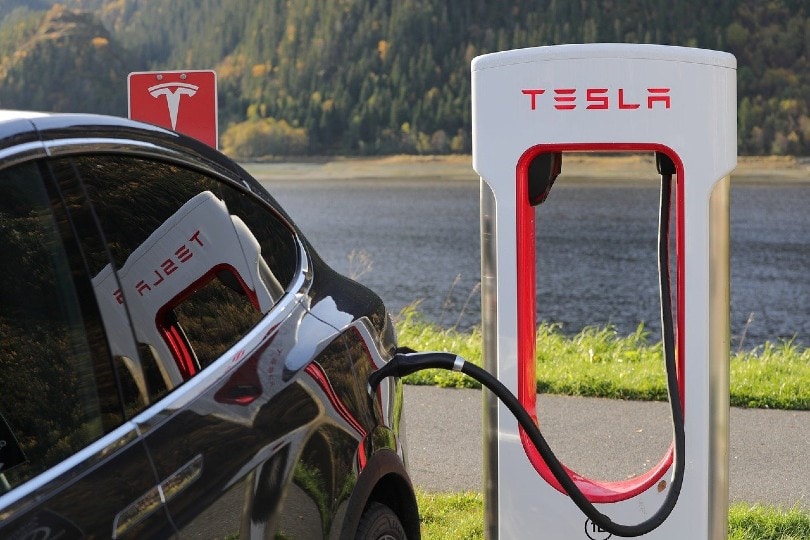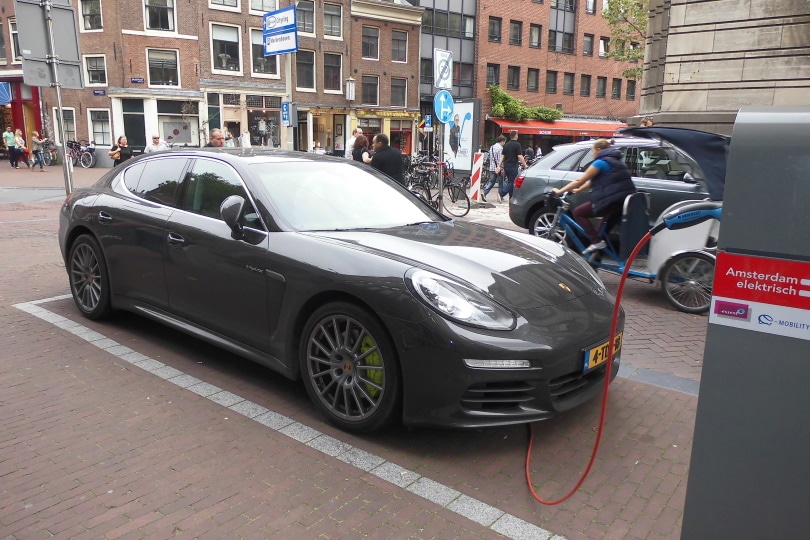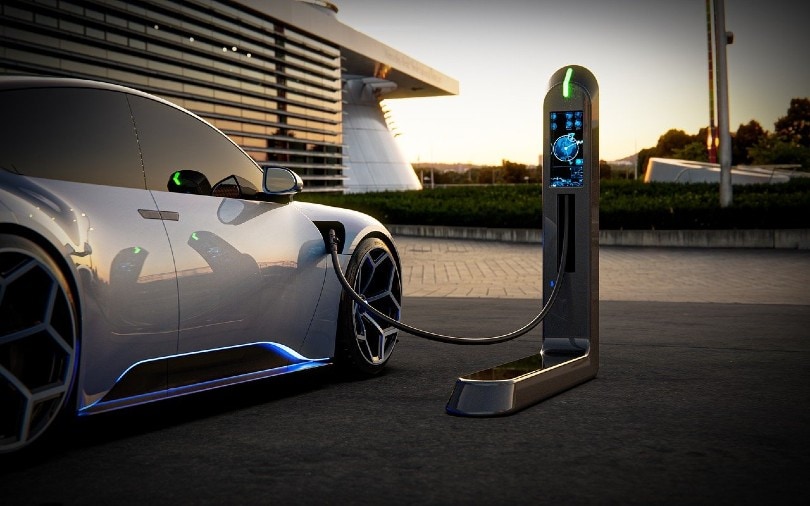How Much Electricity Does an Electric Car Use? By The Numbers!
-
Pete Ortiz
- Last updated:

Electric cars burst into the limelight in the early 2010s as an environmentally friendly and supposedly more efficient alternative to gas-powered vehicles. Several automakers released electric cars around this time, including the Nissan Leaf, Chevy Volt, and Tesla Model S. Tesla, the largest electric vehicle (EV) automaker, is currently valued at a whopping $666.50 billion.
While electric cars have immense utility and could certainly save the environment, there’s always the question of how much electricity these cars use. On average, they use about 30kWh per 100 miles.
On the one hand, they reduce our reliance on fossil fuels; on the other hand, the electricity they use could cause just as much damage. Read on to learn more.
How Much Electricity Do Electric Cars Use?

Electric cars use a lot of electricity, about 30 kWh per 100 miles on average. That’s about the equivalent of running a hair dryer for 3 hours straight. And it’s a whole lot more than the 8 kWh used by an average gasoline car traveling the same distance.
The good news is that electricity is cheaper than gas, so even though electric cars use more power, they still cost less to operate. For example, if you drove a gas car and an electric car for the same distance, the electric car would only cost about $4.50 in electricity, while the gas car would cost you $9.00 in gas.
What Is an Electric Car’s Power Consumption?
Electric cars have a few different power consumption ratings. The first is miles per gallon equivalent (MPGe), which measures how far an electric car can travel on the same amount of energy as gasoline. For example, if an electric car has an MPGe rating of 100, it can travel 100 miles on 33.7 kWh of electricity (the amount of energy in one gallon of gasoline).
The second power consumption rating for electric cars is watts per 100 miles (W/100mi), which measures the number of watts required to travel 100 miles. One watt is equivalent to one joule of energy per second. This rating is a bit more complicated than MPGe, but it essentially tells you how much electricity an electric car uses to travel a certain distance.
Electric cars also have a third power consumption rating, which is kilowatt-hours per 100 miles (kWh/100mi). This rating measures the number of kilowatt-hours required to travel 100 miles and is the most accurate way to measure an electric car’s power consumption. But all in all, the lower an electric car’s power consumption rating, the more efficient it is.
Are Electric Cars More Efficient Than Gas-Powered Cars?

Right off the bat, electric cars are more efficient than gas-powered cars, but they’re not perfect. In fact, electric cars could be a lot more efficient if we had better battery technology. EVs currently use lithium-ion batteries, which are about 80% efficient. That means that for every 100 watts of electricity going into the battery, only about 80 watts come out to power the car.
But there are new battery technologies being developed that could make lithium-ion batteries a lot more efficient. Sila Nanotechnologies, for instance, is looking to replace the graphite anode in lithium-ion batteries with a new form of silicon. This not only increases the battery energy density by 20% to 40% but also lets it charge faster.
What Is an Electric Car’s Pump Price?
While it’s clear that electric cars aren’t energy-intensive, it’s difficult to determine an EV’s pump price. That’s because
- The price of pumping electricity varies from supplier to supplier
- Different vehicles have different consumption rates
However, a rough estimate would put the electric car’s pump price at about $3 to $4 per 100 kilometers. This is lower than the typical gas-powered vehicle’s pump price, which is around $13 per 100 kilometers.
How Does an Electric Car’s Electricity Consumption Compare to That of Common Appliances?
Now that we know how much electricity electric cars use, let’s compare their power consumption to some common household appliances. Here are a few examples:
| Home Appliance | Power Consumption |
| Electric vehicle
|
30KwH per 100 miles
|
| Air conditioning and heating
|
28 to 63 kWh per day depending on the type
|
| Refrigerator
|
225 watts per day
|
| Water heater
|
13.5 kWh per day
|
| Dryer and washer
|
3045 watts per day
|
| Lighting | 0.2 kWh per day
|
Are Electric Cars Good for the Environment?

Electric cars are much better for the environment than gas-powered cars. For one, they don’t produce any emissions, so they don’t contribute to air pollution. Additionally, electric cars are more efficient than gas-powered cars, so they use less energy overall.
The main environmental concern with electric cars is their batteries. Lithium-ion batteries, which are the most common type of battery used in electric cars, can be harmful to the environment if they’re not disposed of properly. That’s because they contain heavy metals like cobalt and cadmium, which can leach into the ground and contaminate water supplies.
However, there are ways to recycle lithium-ion batteries so that they don’t end up in landfills. And as battery technology improves, we may be able to develop batteries that are more environmentally friendly.
 Final Thoughts: Electric Cars Are the Future!
Final Thoughts: Electric Cars Are the Future!
Electric cars are slowly but surely becoming popular, and it’s not hard to see why. They’re more efficient than gas-powered cars, better for the environment, and cheaper to operate. Plus, with electric car technology getting better by the day, consumers are in for a real treat. So if you’re thinking about making the switch to an electric car, now is the time to do it!
Featured Image Credit: urswidmer61, Pixabay
Contents


